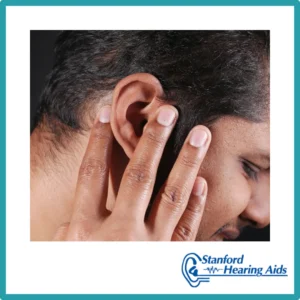Viagra Linked to Hearing Loss: Should You Worry?
Understanding the Connection Between Viagra and Hearing Loss
Erectile dysfunction medications like Viagra have helped many men, but recent studies suggest a possible risk. Research indicates a connection between Viagra and sudden hearing loss, also known as sudden sensorineural hearing loss (SSNHL). While rare, this condition can develop within hours or days after taking the medication. Men over 40 appear to face a slightly higher risk. If you use Viagra or similar drugs, understanding this potential risk is essential. Knowing the symptoms and acting quickly can make a difference.
Some studies suggest that Viagra may have effects beyond its intended use. Since it alters blood circulation, experts theorize that this could affect the delicate structures of the ear. Many individuals do not experience any noticeable side effects, but for some, the impact could be more severe. This has raised concerns in the medical community, prompting ongoing research into its long-term effects on hearing.

What Is ‘Viagra Deafness’?
Some researchers use the term “Viagra deafness” to describe sudden hearing loss linked to erectile dysfunction drugs. PDE-5 inhibitors, including Viagra (sildenafil), Cialis, and Levitra, may contribute to hearing issues. This hearing loss usually affects one ear and can be temporary or permanent. Sometimes, tinnitus or dizziness accompanies the hearing changes. The FDA has acknowledged these cases, adding hearing loss warnings to drug labels. Though uncommon, these incidents highlight the need to remain cautious.
In some reported cases, individuals taking Viagra experienced a rapid decline in hearing within just a few hours. While most cases involved one ear, there have been instances where both ears were affected. Though recovery is possible, some users experience permanent hearing damage. This has led many researchers to call for increased awareness of potential risks and closer monitoring of symptoms.
How Might Viagra Affect Hearing?
While researchers have not identified an exact cause, several theories suggest how Viagra may impact hearing:
- Blood Flow Changes: Viagra increases blood flow throughout the body, including the inner ear. This may lead to pressure changes that harm delicate ear structures.
- Cochlear Damage: The cochlea converts sound vibrations into nerve signals. Viagra might disrupt this process, leading to hearing loss.
- Vascular Effects: Viagra influences blood vessels, which could reduce oxygen and nutrient flow to inner ear cells, affecting hearing.
- Nitric Oxide Impact: Some experts believe Viagra raises nitric oxide levels, which might stress ear cells and damage hearing.
- Inflammatory Response: Some researchers suggest that the drug may trigger an inflammatory response that disrupts normal ear function.
Though not everyone who takes Viagra experiences hearing issues, studies suggest a small but significant risk. Hearing loss typically occurs within 24 to 48 hours of taking the drug. Some patients have also reported experiencing balance issues, muffled hearing, or an inability to distinguish certain frequencies.
Understand the connection between heart and hearing health.
What Is Sudden Sensorineural Hearing Loss (SSNHL)?
SSNHL is a rapid, unexplained loss of hearing in one or both ears. It can occur suddenly or develop over several days. Common symptoms include:
- Sudden loss of hearing in one ear
- Tinnitus (ringing in the ears)
- Dizziness or balance issues
- A feeling of fullness in the ear
- Muffled sounds or difficulty understanding speech
SSNHL has many possible causes, including viral infections, autoimmune disorders, vascular problems, and medication side effects. Sometimes, stress or trauma may contribute to its onset. Regardless of the cause, early treatment often improves the outcome. When left untreated, SSNHL can result in long-term complications, such as difficulty distinguishing speech in noisy environments and persistent ear discomfort.
Learn more about sensorineural hearing loss.

What Does the FDA Say About Viagra and Hearing Loss?
In response to reports of sudden hearing loss, the FDA updated Viagra’s drug label. The warning states that sudden hearing loss, sometimes with tinnitus and dizziness, has been reported in people using PDE-5 inhibitors. While a direct cause has not been proven, the label advises stopping the medication and seeking medical help if hearing changes occur. The FDA continues to monitor these cases and urges users to remain vigilant.
How to Protect Your Hearing While Taking Viagra
If you take Viagra or similar medications, follow these steps to protect your hearing health:
-
Consult Your Healthcare Provider: Discuss potential side effects before starting Viagra. Ensure your provider knows your full medical history.
-
Follow Recommended Dosage: Do not exceed the prescribed dose, as higher amounts may increase risks.
-
Monitor for Symptoms: Pay attention to any changes in hearing, including sudden loss or ringing.
-
Be Aware of Drug Interactions: Some medications can heighten Viagra’s side effects, including hearing issues. Inform your provider about all prescriptions, supplements, and over-the-counter drugs you take.
-
Schedule Regular Hearing Check-ups: A hearing care provider can detect early signs of hearing loss. Annual hearing tests can track your hearing health.
-
Protect Your Ears from Noise Exposure: Loud noises may increase the risk of hearing damage, especially if you take Viagra. Wear hearing protection at concerts or when using loud equipment. Understand the dangers of occupational hearing hazards.
-
Maintain a Healthy Lifestyle: Proper nutrition, exercise, and avoiding smoking can help protect your hearing. Reducing stress and managing blood pressure also support ear health.
-
Avoid Loud Environments After Taking Viagra: Some experts suggest avoiding loud noise for at least two days after using PDE-5 inhibitors. This precaution could lower the risk of sound-induced damage.
-
Track Medication Effects: Keep a log of any unusual symptoms that occur after taking Viagra. This record may help identify patterns and alert your healthcare provider to side effects.
Find out how to support your hearing health with nutrients.
When to See a Hearing Care Provider
If you notice sudden hearing loss, seek medical attention immediately. Early treatment may improve recovery chances. A hearing care provider at Stanford Hearing can evaluate your hearing and recommend appropriate solutions. Treatment for SSNHL often includes corticosteroids to reduce inflammation and improve recovery odds. In some cases, hyperbaric oxygen therapy may also be recommended.
Common Treatments for SSNHL
When SSNHL occurs, hearing care providers may recommend several treatment options:
- Steroids: Reduce inflammation and swelling in the inner ear.
- Antiviral Medication: Sometimes used if a viral infection is suspected.
- Hyperbaric Oxygen Therapy: Boosts oxygen supply to the ear, supporting healing.
- Hearing Aids: Help restore hearing if permanent loss occurs.
- Sound Therapy: Some patients benefit from sound therapy, which helps retrain the brain to process sound more effectively.
Each treatment varies based on the individual’s condition. Early evaluation ensures the best recovery outcomes.
Find out more facts and fictions about hearing loss.

Take Control of Your Hearing Health
Viagra has provided benefits for many men, but awareness of potential side effects is crucial. While hearing loss linked to Viagra is rare, staying informed and taking precautions can help protect your hearing. Understanding the warning signs allows you to act quickly if problems arise. If you experience any changes in your hearing, contact Stanford Hearing today to schedule a professional evaluation. Our experienced hearing care providers offer personalized support to safeguard your hearing health.
By staying informed and proactive, you can continue to make educated decisions about your health while minimizing potential risks.
Contact our hearing center in Sioux Falls, our Madison hearing center, or our hearing center in Buffalo, MN.
